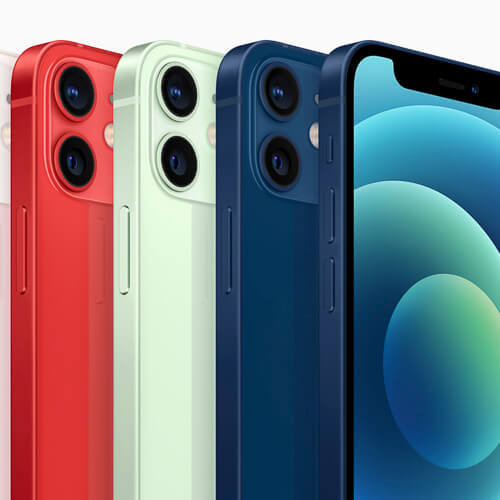
Apple toppled Samsung from the number one spot in the smartphone vendor rankings during the final three months of 2020, according to the latest update from Gartner.
Figures from the research and analyst group show that the iPhone manufacturer shipped 79.94 million devices in the fourth quarter and gained a 20.8% market share.
Samsung slipped to second place with a 16.2% share, while Huawei dropped to fifth position with an 8.9% market share.
Figure 1:  Back on top: Apple's long-awaited entry to the 5G handset market has pushed the company back to the top of the phone pile.
Back on top: Apple's long-awaited entry to the 5G handset market has pushed the company back to the top of the phone pile.
(Source: Apple)
Gartner said the launch of the 5G iPhone 12 series helped Apple to record double-digit growth in Q4 2020, and it noted that the last time Apple was the top smartphone vendor was in Q4 2016.
The Gartner figures broadly align with those from Counterpoint Research, although the latter put Huawei in sixth place in Q4, slightly behind domestic rival Vivo, with an 8% market share.
China-based vendors Xiaomi and Oppo were ranked third and fourth respectively. IDC also ranked Huawei in fifth place in Q4 2020, with an 8.4% share.
Overall smartphone sales declined 5.4% in Q4 2020 and 12.5% in 2020 as a whole, according to Gartner. However, IDC said Q4 smartphone sales actually grew 4.3% year-on-year, with a 5.9% decline registered in the full year.
While both analyst firms estimated broadly similar sales of around 385 million for Q4, Gartner's figure for Q4 2019 was higher at 406.6 million compared to IDC's 369.9 million. Counterpoint's figures were 401.1 million in Q4 2019 and 395.9 million for Q4 2020.
For 2020 as a whole, Gartner estimates sales of 1.34 billion, compared to Counterpoint's 1.33 billion and IDC's 1.29 billion.
Samsung retains top billing
Samsung was still ranked number one in terms of annual sales for the year, according to all three analyst firms. Apple was ranked second, followed by Huawei in third place.
Gartner noted that Apple and Xiaomi were the only two smartphone vendors of the top five ranking to experience growth in 2020, while Huawei recorded the highest decline among the top five smartphone vendors.
"The impact of the ban on use of Google applications on Huawei's smartphones was detrimental to Huawei's performance in the year and negatively affected sales," Gartner said.
Want to know more about 5G? Check out our dedicated 5G content channel here on Light Reading.
The outlook for 2021 is largely positive: Gartner has already predicted that sales this year will increase by 11.4% to 1.5 billion, boosted by rising 5G smartphone sales and pent-up demand following the impact of the first coronavirus-related lockdowns in 2020.
5G devices are expected to account for 35% of total smartphone sales this year.
IDC has previously said that demand, continued supply push on 5G, aggressive promotions, and the popularity of low- to mid-priced phones are fueling a recovery in the market.
Nabila Popal, research director at IDC, said vendors "also seem to be better prepared for the second lockdown, ensuring they have the right channel set up ready to fulfill orders and reach the end consumer."
"Lockdowns also have people spending less on areas like leisure, travel, and dining out – and smartphones are benefitting from this. In addition to all these factors, the fast recovery and resilience of the smartphone supply chain also has to be given some credit."
Related posts:
— Anne Morris, contributing editor, special to Light Reading
About the Author(s)
You May Also Like




_International_Software_Products.jpeg?width=300&auto=webp&quality=80&disable=upscale)







